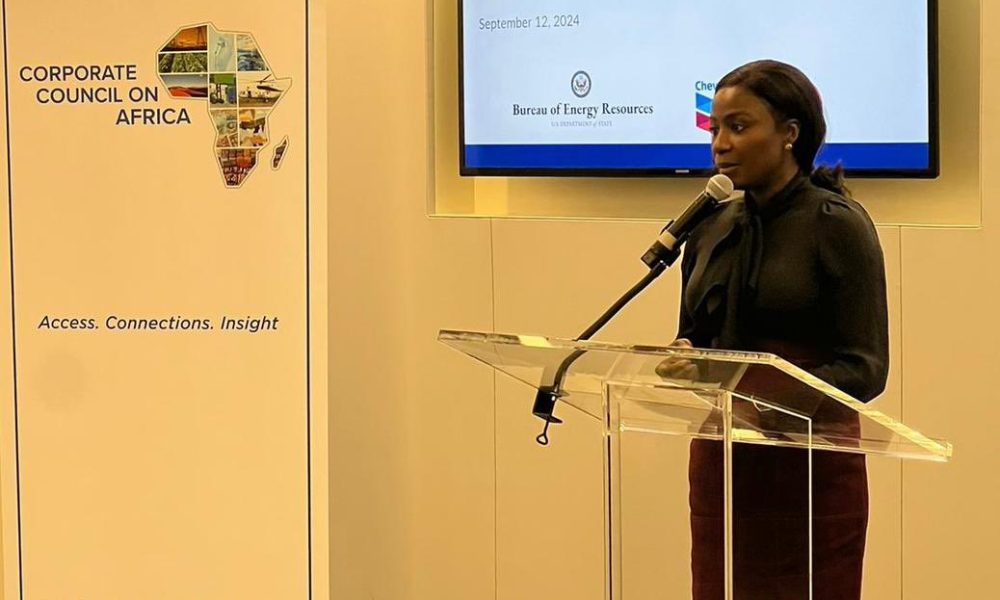Nigeria is presently seeking to close the energy gap for no fewer than a 100 million people.
Special Adviser to the President on Energy, Olu Verheijen stated this in remarks delivered last Thursday at a luncheon organized as part of the inaugural US-Nigeria Strategic Energy Dialogue hosted by the US State Department in Washington DC.
Verheijen also announced that five new presidential directives have been issued to cut cost and time of contracting for gas projects.
She added in her address that a new upstream gas project which is worth in the region of $550 million has kicked off.
Verheijen said that major reforms introduced in Nigeria since June 2023 have focused on improving energy security, attracting investment and deepening collaboration with key partners like the United States government.
The Dialogue was established in June 2023 to create a platform for the US and Nigerian governments and private sector to deepen bilateral cooperation to advance the implementation of shared energy and climate action ambitions.
Nigeria seeks to create a robust regulatory framework and attract new investments for the production of gas for power, transportation and clean cooking.
“I cannot overstate the importance of our longstanding relationship with the US and this inaugural dialogue,” she said.
“The goal of this dialogue is to for us to jointly proffer solutions that will close the energy access gap for close to 100 million Nigerians who still lack reliable power,” said Verheijen.
“We want existing and potential partners to better understand our areas of priority so that our collaboration can be better targeted and with tangible outcomes.”
“The inaugural U.S.-Nigeria Strategic Energy Dialogue sets the stage for a strengthened collaboration between the United States and Nigeria.
“Together, we are advancing shared energy security, decarbonization and economic growth goals,” said Geoffrey R. Pyatt, Assistant Secretary of the State Department’s Bureau of Energy Resources (ENR).
Verheijen highlighted key reforms that the government of Nigeria has launched to improve the viability of the gas-to-power value chain since President Bola Tinubu assumed office.
These include initiatives to improve cash flows in electricity distribution through smart metering and the payment of outstanding debts owed investors and to reduce carbon emissions from gas production.

